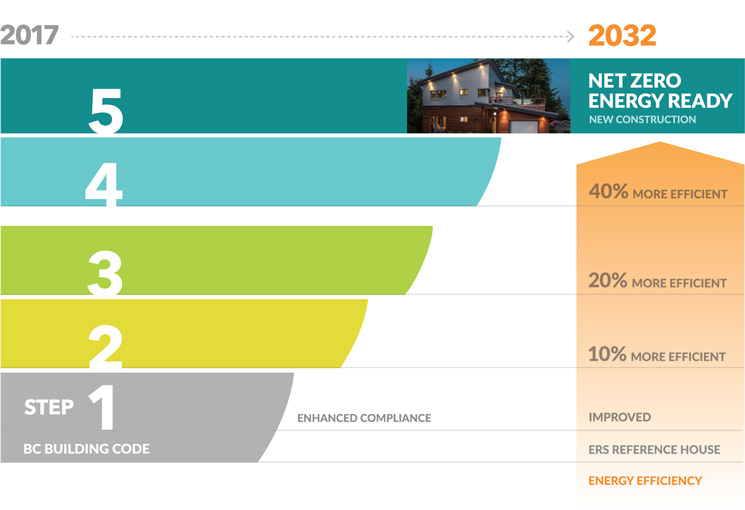Learn about the innovative approaches being used to build better homes and the energy savings for home owners.
LEEP Video Project - Series One
These videos showcase how the LEEP initiative is helping to drive innovation in the industry and accelerate the construction of affordable energy-efficient homes.
Learn more about the LEEP field-trial homes and you’ll be inspired to step up with the BC Energy Step Code. Natural Resources Canada brought LEEP to BC in partnership with BC Housing, BC Hydro, FortisBC, City of Vancouver and the City of New Westminster.
Video
LEEP Video – New Westminster
Brian Lowka, Master Builder at Faserit Construction, explains the importance of energy modelling to predict and understand the performance of a house. The two micro homes featured here in New Westminster, B.C., are certified ENERGY STAR and R-2000 and have achieved BC Energy Step Code for Part 9 Step 5.
LEEP Video – Agassiz
Meet Nathan Stone, Partner and Master Builder at Odessa Group. His goal is “to build 300 homes that are all better than the average code.” Through the LEEP program, his team added some continuous rigid insulation to this home in Agassiz, B.C., which removed heat loss through framing in the walls. The home is now certified ENERGY STAR and achieved BC Energy Step Code for Part 9 Step 3.
LEEP Video – Chilliwack
Jonathan Zerkee, Master Builder and President of Sonbuilt Homes, builds high-performance homes because he “cares about our environment and the living environment of the individual person.” This video focuses on clean air (the lungs of the house) at a Chilliwack, B.C. home that is certified R2000 and achieved BC Energy Step Code for Part 9 Step 4.
LEEP Video – Squamish
Bob Deeks, Owner and Master Builder of RDC Fine Homes, shares the importance of right-sized mechanical systems. His team built two energy-efficient homes with the help of an energy advisor and HVAC designer. These Squamish, B.C., homes achieved BC Energy Step Code for Part 9 Step 3.
LEEP Video – Cariboo
This video highlights the Alkali Lake Health & Wellness Centre, which received a Net Zero Energy Ready label from the Canadian Home Builders’ Association (CHBA). This is the first such project in a First Nations community and in a northern climate to achieve this recognition. The Esk’etemc First Nation, in partnership with health authorities, opened this five-bed facility to provide indigenous residents of the Thompson Cariboo region with culturally appropriate recovery services.
LEEP Video – LEEP Overview
Industry leaders, master builders and energy advisors discuss how the LEEP’s collaborative, builder-driven process has helped them and the industry integrate new innovations and technologies into their designs, enabling them to build better, energy-efficient homes.
What is LEEP?
LEEP enables builders to reduce their time and risk by using innovations that can help them build higher performance homes better, faster and more affordably. Builder groups use LEEP to collaborate on opportunities and innovations for home building in their markets.
The Local Energy Efficiency Partnership (LEEP) process was first developed by the Office of Energy Research and Development at Natural Resources Canada (NRCan). This business-to-business initiative has since been adopted in several Canadian provinces, now including B.C.
BC Housing, BC Hydro, Fortis BC, the City of Vancouver, and the City of New Westminster worked together to get LEEP started in the province and local home builders associations also played a key role in delivering the initiative.
BC Energy Step Code
The Province has committed to taking incremental steps to increase energy-efficiency requirements in the BC Building Code to make buildings net-zero energy ready by 2032. The BC Energy Step Code – a part of the BC Building Code – supports that effort.
The BC Energy Step Code only applies to new construction of the following building types:
- Residential (Part 9) – Province-wide
- Multi-unit residential and commercial (business and personal services and mercantile) – only in climate zone 4 (i.e., Lower Mainland, southern Vancouver Island, southern Okanagan).
Building owners may voluntarily build to the requirements in the BC Energy Step Code. Incentives are available for achieving higher standards.
